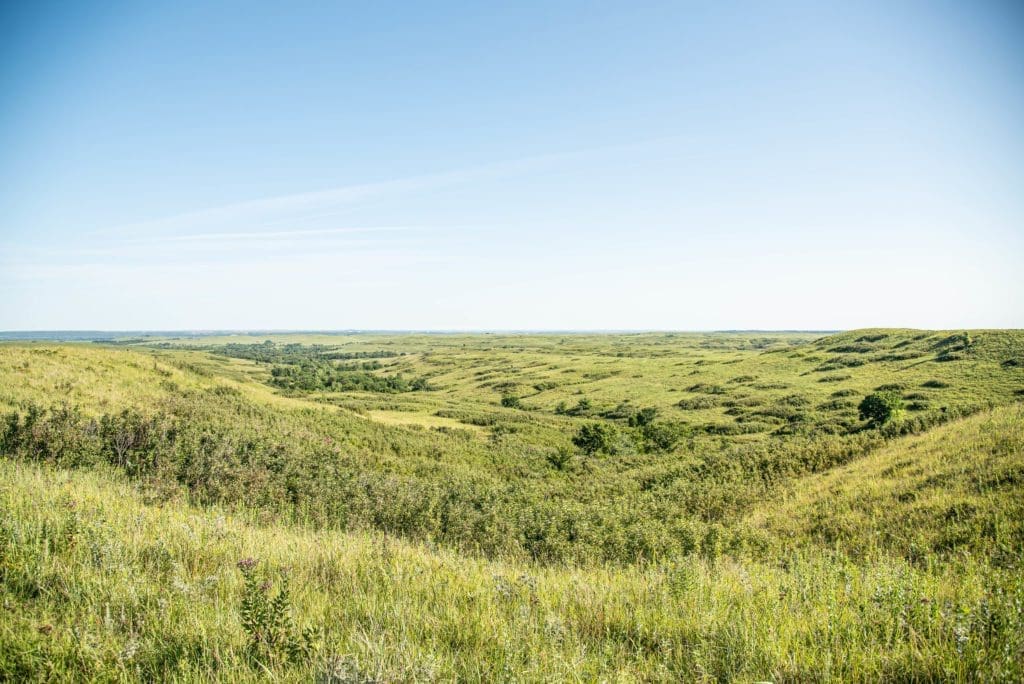MANHATTAN — Kansas State University’s Konza Environmental Education Program is offering elementary and middle school curricula for teaching about the prairie ecosystem.
Prairie Week Curriculum incorporates research findings at K-State’s Konza Prairie Biological Station. The curriculum is divided into five days of student exercises and activities, which encourages comprehension of scientific data. All materials align with next-generation science standards.
“The prairie ecosystem is one of the most altered landscapes in the world,” said Jill Haukos, director of education for the Konza Prairie Biological Station. “Where there were once unbroken miles of grassland now stand rows of corn and soybeans. Understanding the importance of this ecosystem is a topic that is seldom addressed in the classroom, even in classrooms located in historically grassland-dominated regions.”
Haukos developed the curricula to address the components of a grassland and walk students logically through the ecology of the prairie. The lesson plans help students gain a better understanding and appreciation for the role research plays in future management and conservation work.
Hauck said the elementary curriculum prepares students for the middle school lesson plans, but each can be used independently.
Both curriculum sets contain lessons for five daily 45-minute lessons. A teacher’s guide, PowerPoint presentations and student worksheets are also included. Videos capturing the grassland at different times of the year are linked into the lessons and take students on a virtual journey through the prairie.
For more information, visit the Konza Environmental Education Program’s website, email konzaed@k-state.edu or call 785-587-0381.













